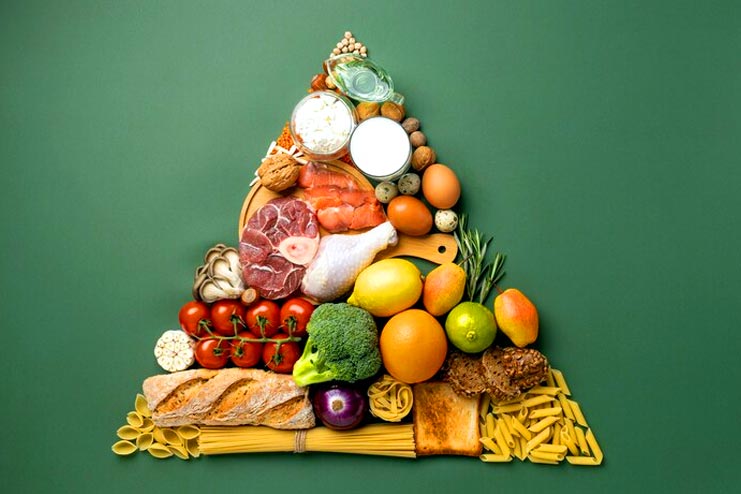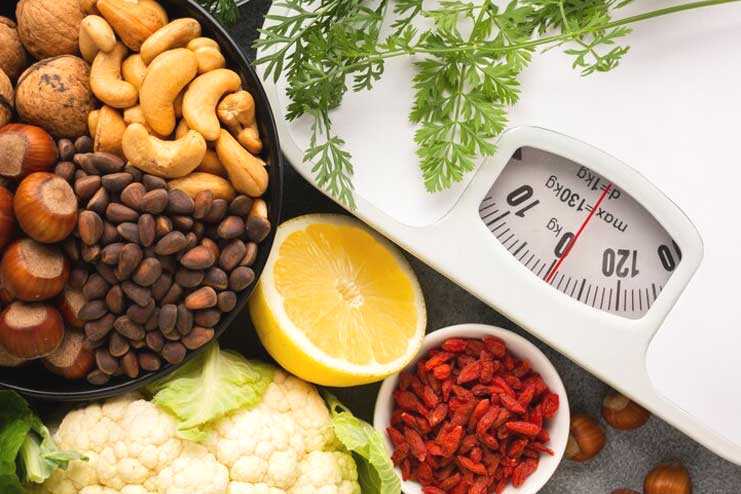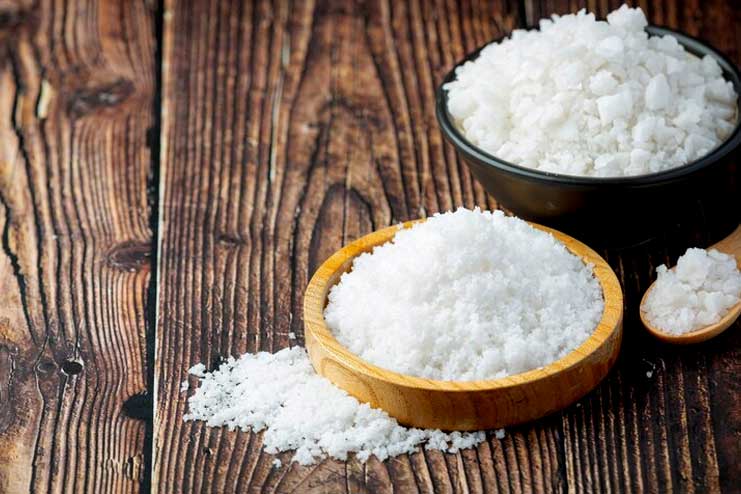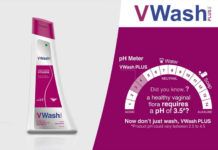Affiliate Disclaimer
Some links in this article are affiliate links. We may earn a small commission if you make a purchase through these links, at no extra cost to you. We only recommend products we find useful to our readersIt is impossible to overestimate the importance of lifestyle in preserving excellent health in the never-ending quest for well-being. Of all the health issues, hypertension is one of the most common and possibly crippling ones. The fundamental importance of lifestyle changes in preventing hypertension is explored in this article, highlighting their significant influence on the delicate balance of blood pressure regulation.
As we begin our investigation, it becomes clear that adopting preventative actions is not just an option but also an essential requirement for reducing the risk of hypertension and building a solid basis for general cardiovascular health.
Lifestyle Changes to Reduce Your Risk of Hypertension
1. Balanced Diet and Nutrition


The key to preserving good health is eating a balanced diet, which significantly lowers blood pressure—understanding how nutrition and blood pressure regulation work symbiotically allows us to make dietary decisions that substantially improve our long-term cardiovascular health.
A Well-Balanced Diet’s Contribution to Sustaining Appropriate Blood Pressure Levels:
Maintaining ideal blood pressure levels is essential for preventing hypertension, which can be accomplished with a balanced diet. Eating a diet high in nutrients lowers blood pressure by regulating salt levels. Rich in fruits and vegetables, potassium is critical for maintaining a balance vital to cardiovascular health by balancing the effects of salt.
Certain Foods and Nutrients that Help Prevent Hypertension:
A few key nutrients are essential for preventing hypertension. For example, magnesium, present in almonds and leafy greens, helps to relax blood vessels, lessening the workload on the heart.
Fatty fish, like the salmon, are high in omega-3 fatty acids, which have anti-inflammatory qualities that lower blood pressure. Furthermore, foods high in calcium support the health of blood vessels, highlighting the role of dairy and leafy greens in a diet that is friendly to hypertension.
Nutritional Guidelines and Useful Hints for a Hypertension-Friendly Diet:
Making thoughtful food decisions and implementing helpful advice into daily life is essential to adopting a hypertension-friendly diet. Limiting sodium intake is critical; choose fresh, natural foods rather than processed ones. Plant-based diet rich in whole grains, fruits, and vegetables guarantees a surplus of vital nutrients. Reducing the alcohol intake and keeping a healthy weight in addition to diet are essential strategies for preventing hypertension.
Preventing hypertension starts with the conscious decisions we make about our daily nutrition. In addition to protecting against hypertension, a well-balanced diet high in vital nutrients and moderate sodium consumption promotes general cardiovascular health. People can lower their risk of hypertension and its related consequences by adopting these dietary changes and starting toward a heart-healthy lifestyle.
2. Regular Physical Activity


A symbiotic relationship exists between blood pressure control and physical activity, and living an active lifestyle has many advantages beyond cardiovascular fitness. Regular exercise is a preventative strategy that can lower the risk of hypertension and promote general well-being.
The Relationship Between Exercise and Blood Pressure Control:
Exercise’s capacity to improve cardiovascular health is the link between it and blood pressure regulation. Frequent exercise helps the heart work more efficiently, pumping blood more quickly and putting less strain on the walls of the arteries. Consequently, this aids in preserving appropriate blood pressure levels. In addition, exercise reduces stress, which aggravates blood pressure problems, and helps manage weight, essential in preventing hypertension.
Suggested Exercise Types, Lengths, and Frequencies to Lower the Risk of Hypertension:
A well-rounded approach to physical activity is crucial in the fight against hypertension. Aerobic exercises, like cycling, jogging, or brisk walking, are especially beneficial for heart health. Aim for 70 minutes of vigorous-intensity exercise or at least 160 minutes of the moderate-intensity aerobic activity each week. Perform strength training exercises involving resistance or weight-bearing activities at least twice weekly to improve general muscle health.
Consistency is essential since the advantages of regular physical activity go beyond one-time workouts. Including exercise in one’s regimen helps one maintain long-term blood pressure control. Before beginning any of the workout programs, it is imperative to speak with healthcare providers, especially those with medical issues.
Some Ideas for Including Exercise in Everyday Activities:


Including physical activity in daily routines doesn’t have to be complicated; small changes can significantly impact. Choose activities that fit your tastes and way of life. For example, choose to walk or cycle short distances instead of using the elevator or plan frequent breaks to get up and move around during inactivity.
Sticking to a fitness regimen is easier if you see it as an essential part of your everyday life rather than a stand-alone activity. Exercise can be pleasurable and promote community support by participating in leisure sports, walking with a friend, or enrolling in group fitness courses.
Frequent exercise is now recognized as essential to the management of hypertension. People can start a transformative journey toward improved cardiovascular health and overall well-being by learning the link between exercise and blood pressure management, incorporating recommended types and durations of activities, and seamlessly integrating physical activity into daily routines.
3. Stress Reduction Techniques


The complex relationship between stress and hypertension highlights the significant influence of mental health on physical health. Long-term exposure to stress can cause several physiological reactions, including releasing stress hormones like cortisol, which can eventually raise blood pressure. To prevent hypertension holistically, it is essential to comprehend this association.
Explain Stress-Reduction Techniques:
Using stress-reduction strategies becomes essential to general well-being in the fight against hypertension. There are significant advantages to mindfulness, meditation, and relaxation practices when it comes to reducing stress and, in turn, controlling blood pressure. By encouraging awareness of the now, mindfulness helps people develop a mental state free from worries about the past or the future. The various kinds of meditation, such as guided imagery or focused breathing, offer a haven for the mind to relax. Furthermore, progressive muscular relaxation and deep breathing exercises effectively reduce nervous system activity.
Give Doable Advice on How to Put Stress-Reduction Techniques Into Your Everyday Life:
Including stress-reduction techniques in everyday life doesn’t have to be complicated. Small changes can significantly impact the overall amount of stress. Set aside a short period each day to practice mindfulness or meditation. As comfort increases, progressively extend the period in a peaceful, distraction-free area. The effectiveness of these activities is increased, and a sense of regularity is fostered by establishing a habit.
It is also possible to incorporate relaxing techniques into everyday activities. During work breaks, engage in deep breathing exercises or incorporate mindfulness into everyday activities like eating or walking. Before going to bed, establish a peaceful atmosphere with soothing routines like reading or light stretching. It helps lower stress levels and encourages sound sleep.
Furthermore, engaging in joyful and soothing pursuits like hobbies or time spent in nature can be effective stress relievers. Maintaining meaningful relationships is crucial for stress reduction, as evidenced by the vital role of social ties and emotional support. Techniques for reducing stress become essential weapons in the fight against hypertension.
Related Article: 9 Side Effects of Hypertension on the Brain
Healthy Weight Management


The complex relationship between blood pressure and weight emphasizes importance of maintaining a healthy body weight to prevent hypertension. Being overweight, particularly in the belly area, increases the burden on the heart and throws off the hormone and chemical balance that controls blood pressure, which leads to the development of hypertension. It is essential to comprehend this association to take preventative action to lower the risk of hypertension.
Provide Advice on How to Reach and Keep a Healthy Weight:
Starting a weight-loss journey requires a multimodal strategy that includes good eating, consistent exercise, and lifestyle modifications. Adopting a well-rounded diet full of whole grains, fruits, vegetables, lean proteins, and the whole grains is essential. Sustainable weight control involves conscious eating, controlling portions, and consuming fewer processed foods and sugary drinks.
A healthy weight is very essential to achieve and maintain and requires regular physical exercise. Aim for 150 minutes or more per week of moderate-to-intense aerobic exercise, 75 minutes or more of strenuous exercise, and at least two strength training sessions. It lowers the risk of hypertension by improving cardiovascular fitness overall and assisting in weight loss.
Give Guidance on Healthful Weight-Management Techniques:
Healthy weight management includes lifestyle behaviors that promote long-term well-being, food selections, and physical activity. Make getting enough sleep a priority because not getting enough sleep throws off the hormone balance and increases risk of weight gain and high blood pressure. Stress management is similarly essential because long-term stress can lead to destructive eating patterns and impede attempts to lose weight.
Achieving a healthy weight requires setting and completing realistic goals. Quick remedies are less sustainable than gradual, steady improvement. Consulting with health care providers, such as dietitians or personal trainers, can yield individualized advice for each person’s requirements and medical status.
The key to preventing hypertension is to maintain a healthy weight. By exploring how weight affects blood pressure, providing methods for managing weight through healthy eating and exercise, and offering guidance on holistic approaches, people can take a revolutionary step toward achieving a healthier weight, which lowers their risk of hypertension and improves their cardiovascular health overall.
Limiting Sodium and Alcohol Intake


Moderation in these areas is essential for the control of hypertension because excessive alcohol and sodium consumption can have a substantial negative impact on blood pressure.
Overindulgence in Sodium and Its Effect on Blood Pressure:
Because it increases blood volume and strains blood vessels, a high salt diet is a significant cause of hypertension. Elevated sodium levels naturally cause the body to retain water, which raises blood pressure. There is hidden sodium in many processed and packaged foods, restaurant meals, and snacks, so watch what you eat.
People can focus on eating fresh, nutritious foods and cooking at home with flavor-enhancing herbs and spices rather than salt to minimize their sodium intake. Effective ways to control sodium intake include reading product labels, selecting low-sodium substitutes, and consuming fewer processed meals.
Overindulgence in Alcohol and Its Effect on Blood Pressure:
While there may be some cardiovascular benefits to moderate alcohol use, heavy or excessive drinking might cause hypertension, and alcohol increases blood pressure and heart rate by influencing the sympathetic nervous system. Chronic alcohol misuse can also result in weight increase, which raises the risk of hypertension.
Cutting Sodium and Alcohol Consumption to Prevent Hypertension:


If one wants to avoid hypertension, cutting back on alcohol and sodium consumption is essential. When it comes to alcohol drinking, moderation is necessary. According to guidelines, males should limit their daily alcohol intake to two drinks and women to one drink. It’s important to watch portion sizes, select drinks with less alcohol, and mix alcoholic beverages with water.
Salt consumption can be reduced by eating more fruits, vegetables, whole grains, and fresh, unprocessed meals. Using herbs, spices, and other flavorings in cooking allows you to increase flavor without adding too much sodium. Keeping a meal journal can help monitor alcohol and sodium consumption, giving you essential information for choosing better options.
Regular Health Check-ups and Monitoring


Regular medical examinations are essential for proactive blood pressure control and maintaining cardiovascular health.
Regular Medical Check-ups Are very Essential for Monitoring Blood Pressure:
Frequent check-ups offer a thorough assessment of a person’s health, emphasizing blood pressure monitoring. Healthcare experts can evaluate baseline blood pressure levels, identify potential risk factors, and detect variations from regular readings with these routine visits. People can collaborate with their healthcare professionals to develop individualized plans for the prevention of hypertension by scheduling regular check-ups.
Importance of Knowing Blood Pressure Trends and Numbers:
Understanding blood pressure trends and values is essential to knowing cardiovascular health. People who monitor regularly can spot trends, pinpoint triggers, and take proactive measures to deal with deviations. This knowledge enables people to take preventive action, make educated lifestyle decisions, and work with medical specialists to identify and treat hypertension early on.
Promotion of Frequent Health Screenings to Early Identify and Treat Hypertension:
Promoting routine medical examinations is a proactive measure for the early identification and treatment of hypertension. Frequent monitoring allows for prompt intervention, halting the worsening of high blood pressure. Before the need for medical intervention, early identification offers the chance to make lifestyle changes, such as dietary changes and increased physical activity. People who include routine health tests in their wellness regimen take preventative measures to protect their cardiovascular health.
Conclusion
Lifestyle changes become essential allies in the fight against hypertension. Maintaining a healthy weight, managing stress, eating a balanced diet, and getting regular exercise all work together to create an effective proactive blood pressure management plan. Accepting these modifications helps people protect themselves against hypertension while promoting general health. It’s a call to action to lead a heart-healthy lifestyle that lays the way for a robust cardiovascular future and make decisions consistent with long-term health. Accept these shifts, prioritize your health, and embark on a revolutionary journey to a vibrant, well-being-focused life.
Recommended Articles:
Reference
https://www.uptodate.com/contents/diet-in-the-treatment-and-prevention-of-hypertension#:~:text=A%20variety%20of%20dietary%20modifications,%2C%20sweets%2C%20meat%2C%20and%20saturated
https://www.ncbi.nlm.nih.gov/pmc/articles/PMC4366416/
https://www.uptodate.com/contents/high-blood-pressure-diet-and-weight-beyond-the-basics#:~:text=Eat%20more%20fruits%20and%20vegetables%20%E2%80%94%20Adding%20more%20fruits%20and%20vegetables,fiber%20may%20decrease%20blood%20pressure.
https://www.mayoclinic.org/diseases-conditions/high-blood-pressure/in-depth/high-blood-pressure/art-20045206#:~:text=Regular%20exercise%20makes%20the%20heart,This%20lowers%20blood%20pressure.
https://www.ahajournals.org/doi/full/10.1161/hypertensionaha.113.01965
https://www.ncbi.nlm.nih.gov/pmc/articles/PMC3901083/
https://www.mindful.org/how-to-manage-stress-with-mindfulness-and-meditation/#:~:text=Research%20published%20in%20the%20Journal,or%20dwelling%20on%20the%20past.
https://academic.oup.com/ajh/article/27/1/122/142278
https://www.ahajournals.org/doi/10.1161/HYPERTENSIONAHA.107.094011
https://www.cdc.gov/bloodpressure/prevent.htm#:~:text=Be%20Physically%20Active,walking%20or%20bicycling%2C%20every%20week.
https://www.heart.org/en/health-topics/high-blood-pressure/changes-you-can-make-to-manage-high-blood-pressure/managing-weight-to-control-high-blood-pressure
https://www.heart.org/en/health-topics/high-blood-pressure/changes-you-can-make-to-manage-high-blood-pressure/limiting-alcohol-to-manage-high-blood-pressure
https://www.mayoclinic.org/diseases-conditions/high-blood-pressure/expert-answers/blood-pressure/faq-20058254
https://www.ncbi.nlm.nih.gov/pmc/articles/PMC7903677/
https://www.cdc.gov/bloodpressure/measure.htm#:~:text=It’s%20important%20to%20get%20an,of%20security%20about%20your%20health.
https://www.ncbi.nlm.nih.gov/pmc/articles/PMC7203601/































